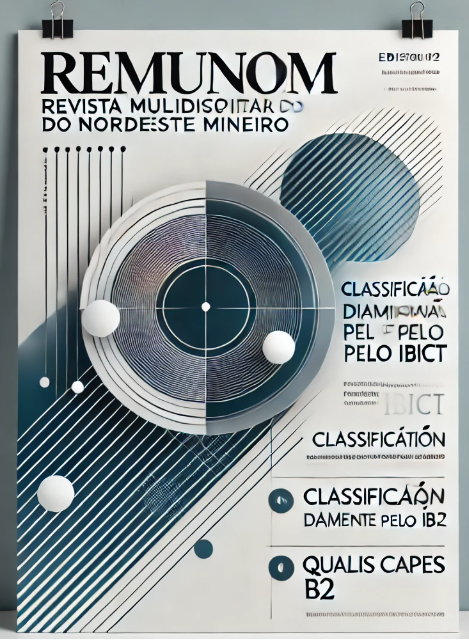A RELEVÂNCIA DO BRINCAR LIVRE NAS APRENDIZAGENS DE CRIANÇAS
EXPERIÊNCIAS DE PROFESSORAS DA EDUCAÇÃO INFANTIL
DOI:
https://doi.org/10.61164/rmnm.v9i1.3983Keywords:
Brincar livre. Brincar direcionado. Educação Infantil.Abstract
Abstract: The processes of interactions and play in early childhood education provide children with relevant learning in the educational context. In this sense, this article explores the practices of early childhood education teachers, as well as the teaching methodologies and difficulties encountered in this process, aiming to analyze the practices carried out by these teachers in the classroom when it comes to free play and guided play. The methodology was carried out through field research, with an exploratory qualitative approach, based on interviews with four teachers of classes of 4 and 5 year-olds, from two schools in Linhares/ES, one in the public network and the other in the private network. It is understood, from the results, that free play and guided play are distinct processes, but inseparable and essential for the construction of effective practices in the development of the child. A diversity in the practices of the teachers carried out in the classroom was also observed. On the one hand, some teachers are constantly searching for new teaching methodologies and, on the other hand, some teachers still show a certain fragility, as they are attached to a fully programmed routine.
Keywords: Free play. Directed play. Early childhood education.
References
BIBLIOGRAFIA
ARIÈS, Philippe. História social da criança e da família. 2 ed. Tradução: Dora Flaksman. Rio de Janeiro: Afiliada, 1981.
BRASIL, Base Nacional Comum Curricular, Brasília, DF: MEC, 2017.
BRASIL. Lei de Diretrizes e Bases da Educação Nacional: Lei nº 9.394, de 20 de dezembro de 1996. 8 ed. Brasília: Edições Câmara, 2013.
BRASIL. Lei de Diretrizes e Bases da Educação Nacional, n. 9.394, 1996.
BRASIL. Constituição. Constituição da República Federativa do Brasil. Brasília, DF: Senado Federal: Centro Gráfico, 1988.
FREDDO, Tânia Maria. O ingresso do filho na escola: o polimento dos espelhos dos pais. Passo Fundo: UPF, 2004.
MELO, Luciana; VALLE, Elizabeth. O brinquedo e o brincar no desenvolvimento infantil. Psicologia Argumento, Curitiba, v. 23, n. 40, p. 43-48, jan./mar.2005.
Ministério da Educação. Secretaria de Educação Básica. Diretrizes curriculares nacionais para a educação infantil. Brasília: MEC, 2010.
MOYLES, Janet R. Só brincar? O papel do brincar na Educação Infantil tradução. Maria Adriana Veronese. Porto Alegre: Artmed, 2002.
PIAGET, Jean. Psicologia e Pedagogia. Trad. Por Dirceu Accioly Lindoso e Rosa Maria Ribeiro da Silva. Rio de Janeiro: Forense Universitária, 1976.
POSTMAN, Neil. O desaparecimento da Infância. Rio de Janeiro: Graphia, 2011.
RUFINO, C.; GOMES, W. A importância da literatura infantil para o desenvolvimento da criança na fase da pré-escola. São José dos Campos: Univap, 1999.
VELASCO, Calcida Gonsalves. Brincar: o despertar psicomotor. Rio de Janeiro: Sprit, 1996.
VYGOTSKY, L. S. A formação social da mente. São Paulo: Martins Fontes, 1984.
_______. A formação social da mente. São Paulo: Livraria Martins Fontes, 1988.
WINNICOTT D. O brincar e a realidade. Imago, 1975.
Downloads
Published
How to Cite
Issue
Section
License
Copyright (c) 2025 Revista Multidisciplinar do Nordeste Mineiro

This work is licensed under a Creative Commons Attribution-NonCommercial-ShareAlike 4.0 International License.




